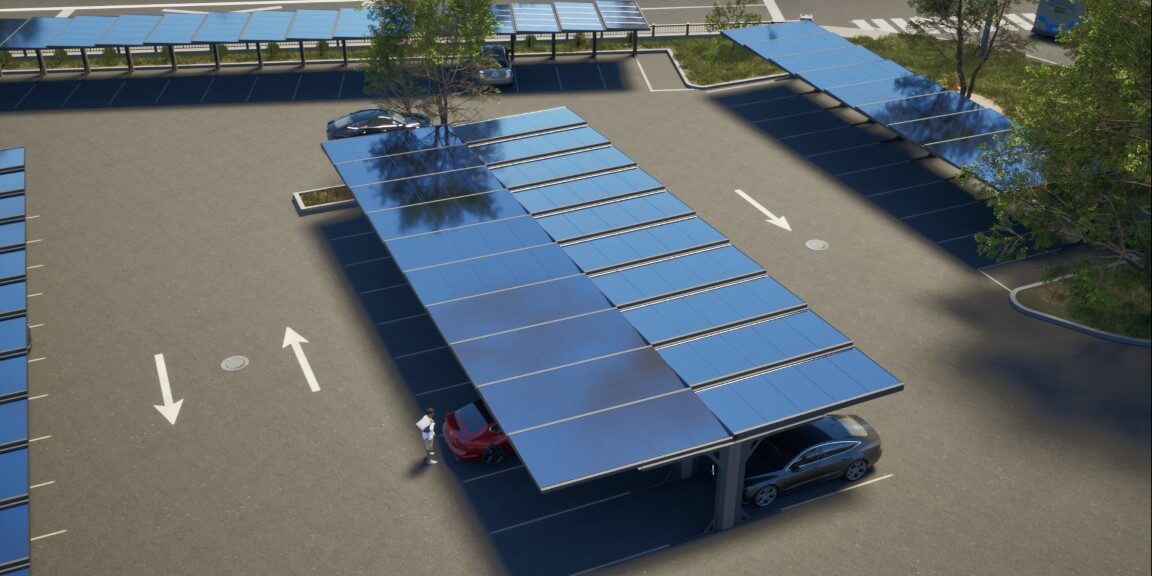From pv magazine Germany
UV Energy said that the systems – from the first inquiry to grid connection – can be deployed in time frames of between three and six weeks. “This usually takes 27 to 47 weeks at the moment,” said Gehardt.
The modular PV system is self-balancing and is secured by ground screws to protect against snow and wind loads, without the need for extensive foundation work. The manufacturer claims that it can be adapted to any parking space size.
Construction can reportedly be done quickly and partially automated, thanks to the small number of parts that are involved and the simplicity of the structure, which is based on two supports.
UV Energy has not provided any specific details about the price. It said that according to self-assessments, due to the “strong efficiency and effectiveness advantages … they are the lowest in the industry,” even though the hardware is “made in Germany.”
UV Energy offers users and property owners a “system model” to purchase the systems. According to the company, comparable solutions from competitors cost two to three times as much. Alternatively, there is also the “utility model,” in which the startup covers the investment costs for the system and installation, while the customer purchases the solar power via a power purchase agreement (PPA) at a fixed price.
The company's in-house software, UV 360° Operations Platform, is central to every project when planning and using the PV systems. This allows the systems to be planned, managed and monitored, according to UV Energy. The software automates the entire project process using AI from planning, sales and production to logistics, assembly, and invoicing.
“Our software only requires information about the location, which it automatically links with geographical and meteorological data and satellite images,” said Gerhardt. “Unless the customer requests otherwise, it is then determined autonomously how much area can be covered and what it will generate.”
UV Energy has already built a prototype installation. Now, the startup is concerned about expanding the organization and the supply chain for large-volume series production, sales, and installation for the next phase. It is also working with building authorities to simplify and accelerate approval processes for photovoltaic carports.
In addition, UV Energy plans to launch a financing round in the current year. The early investors include Dormakaba CEO Till Reuter and Walter Döring, the former Minister of Economics for the German state of Baden-Württemberg.
This content is protected by copyright and may not be reused. If you want to cooperate with us and would like to reuse some of our content, please contact: editors@pv-magazine.com.




By submitting this form you agree to pv magazine using your data for the purposes of publishing your comment.
Your personal data will only be disclosed or otherwise transmitted to third parties for the purposes of spam filtering or if this is necessary for technical maintenance of the website. Any other transfer to third parties will not take place unless this is justified on the basis of applicable data protection regulations or if pv magazine is legally obliged to do so.
You may revoke this consent at any time with effect for the future, in which case your personal data will be deleted immediately. Otherwise, your data will be deleted if pv magazine has processed your request or the purpose of data storage is fulfilled.
Further information on data privacy can be found in our Data Protection Policy.